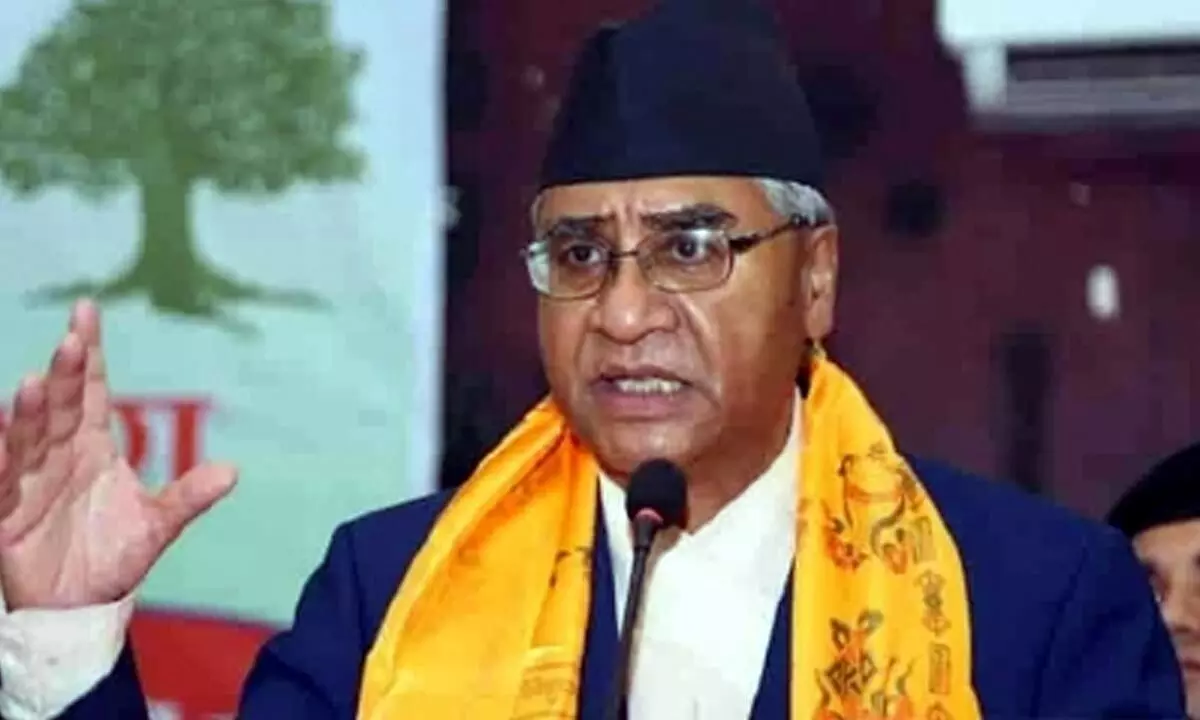Nepal's ruling Congress party going in for poll pact with coalition partners

Congress party spokesperson Prakash Sharan Mahat (Photo/IANS)
The Nepali Congress (NC), which is the main ruling party of Nepal, has decided to forge an electoral alliance with its four coalition partners for the upcoming general and provincial elections which are likely to be held in November this year.
New Delhi: The Nepali Congress (NC), which is the main ruling party of Nepal, has decided to forge an electoral alliance with its four coalition partners for the upcoming general and provincial elections which are likely to be held in November this year.
A week-long crucial meeting of the NC's central committee, which ended on Monday, took a decision to this effect, according to party spokesperson Prakash Sharan Mahat.
"Our party has formally decided to forge electoral alliance with coalition partners for the upcoming general and provincial elections. Now, the party leadership will start holding dialogue with the key leaders of the ruling coalition partners," he said.
The proposal of the Nepali Congress Party to forge the electoral alliance among the coalition partners in the upcoming elections stems from fears that the CPN (Maoist Centre), a key partner in the government, could join hands with the main opposition Communist Party of Nepal (Unified Marxist Leninist) led by KP Sharma Oli in the upcoming elections, according to observers.
Issuing a press statement on Monday evening, the Nepali Congress party vowed to steer the country towards the path of development, defend the constitution and further strengthen democracy if got the chance to lead a stable government yet again.
In local level elections held in May this year, the Nepali Congress had forged electoral alliance with the coalition partners in the present government, which catapulted the party into the first position.
Thus, the Nepali Congress party is now pushing for holding general and provincial elections at the earliest, being encouraged by the results of the local level elections, party leaders said. "We want to achieve a clear majority in the House of Representatives through the upcoming elections like what we did in the last local body polls," NC spokesperson Mahat said.
Although the party's Central Working Committee -- in which the party president commands strong majority -- made a firm decision to forge electoral alliance with the coalition partners on Monday, there were strong voices within the Nepali Congress that it should contest the elections single-handedly.
Those who were opposing the idea of forging alliance believed that the party's base in the election constituencies will eventually erode in the long-run due to such coalition arrangements. Senior leader Shekhar Koirala was one of them who were against having any electoral partnership with other parties.
At a recent press conference, Koirala said that NC should fight the elections alone so that it can show its strength. The NC's decision comes at a time when some second-tier leaders of the two key communist parties -- the Communist Party of Nepal (Maoist Center) and Communist Party of Nepal (Unified Marxist Leninist) -- held negotiations to explore the possibility of a new alliance in the upcoming elections.
According to a cabinet minister, the government is preparing to announce dates for the upcoming elections by the end of July.
Earlier in the first week of July, Nepal's Election Commission had recommended the government to hold provincial and parliamentary elections on November 18 in a single phase. From the upcoming federal elections, 165 members will be elected to the House of Representatives, the lower house of federal parliament, under the First Past the Post electoral system and 110 will be elected under the proportional representation system.
Likewise, for seven provincial assemblies, 330 members will be elected under the direct system and 220 will be elected under the proportional system.
As per the constitution, Nepal holds local, provincial and federal elections every five years. This will be the second time the Himalayan nation holds federal and provincial elections after it adopted its first democratic republic constitution back in September 2015. The country's national charter, also the first post-war full-fledged constitution, had federated the country into seven provinces and 753 local units.














